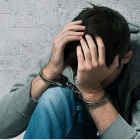
White Paper: Need to Reform Mental Health Treatment for Incarcerated Youth
|
CHICAGO — National mental health organizations and experts are calling for reforming mental health services for incarcerated youth after recent reports revealed startlingly high numbers of mental health disorder in the population. Up to 70 percent of youths who come in contact with the juvenile justice system have a diagnosable mental health disorder, according to a Mental Health and Juvenile Justice Collaborative for Change white paper published Thursday. On average, up to 600,000 youths are in detention centers and 70,000 youths are in correctional facilities every day. Many of those youths are in detention for committing minor, non-violent offenses, according to the white paper. But once inside detention and facilities, youth do not receive proper treatment for mental health disorders.

